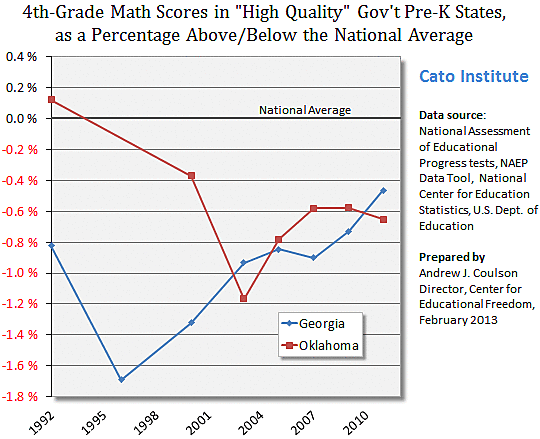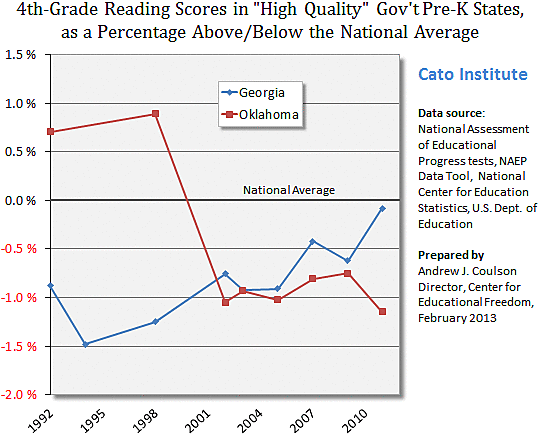In previous blog posts I’ve pointed out that federal pre‑K programs have proven ineffective for half a century and that the claims of large returns-on-investment due to pre‑K stem almost exclusively from just three small-scale programs—out of hundreds of such programs operating around the nation for decades. Naturally, if we confine ourselves to talking about the tiny minority of programs that appear to have worked, we’ll find, well, that they worked. Pretending that their results are representative is not scientifically-based policymaking, it’s willful self-delusion—particularly when they have never successfully been scaled-up.
Those few among the advocates of universal government preschool who comtemplate such facts usually point, in their defense, to Georgia and Oklahoma. These two states have long had universal state-funded preschool programs deemed, by their advocates, to be “high quality.” Even if we could magically wave our policy wands and ensure that these programs could be faithfully replicated by the U.S. Congress, we might not want to. Here is why, in pictures:
Several things are evident from these charts. First, neither state has seen a very large move in its scores relative to the national average; Second, while Georgia shows improvement Oklahoma shows decline; and Third, Oklahoma’s declines are larger than Georgia’s improvements. These are the results in putatively “high quality” pre‑K states. Would anyone without ulterior political motives see them as an argument for borrowing and spending tens of billions of additional federal tax dollars every year?
If taxpayers in certain states around the country think they can improve upon Georgia’s results and avoid falling prey to Oklahoma’s, more power to them. But there is no empirical basis that could justify a federal government role in preK even if the Constitution allowed it one.


